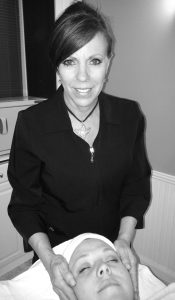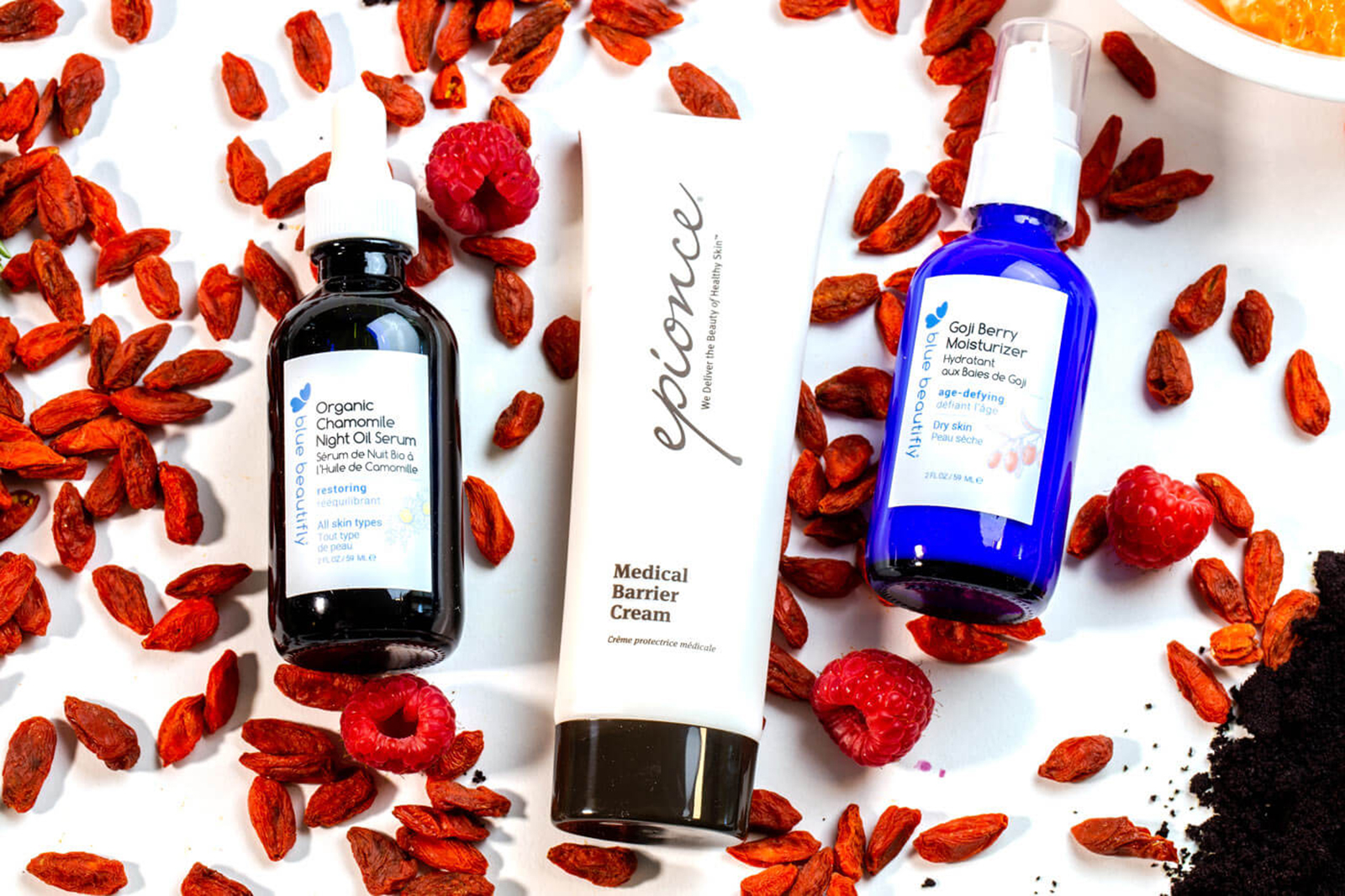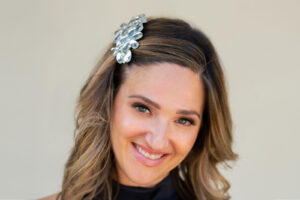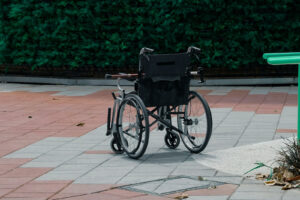Imagine yourself in this situation: You’ve enjoyed your hair your entire life, and then one day, you look in the mirror and see a person with no eyelashes, eyebrows, or hair. How would you feel? How would you go out into the world?
Would you even recognize yourself?

For Becky Kuehn—a licensed master esthetician, cosmetologist, holistic cancer educator, and founder and president of Oncology Spa Solutions—these questions form the basis of her work. As a cancer survivor, Kuehn’s experiences color the type of attention and care she gives her patients, making her a perfect resource to share how the beauty industry can help those in need.
“The thing about cancer is that it becomes public, whether you want it to or not,” Kuehn says. “If you’re losing your hair or you’re losing your eyebrows, or you have red patches on your skin, and nobody can help you cover it up, now you have to start talking about it, and it becomes everybody’s business instead of yours.”
Common side effects of chemotherapy or radiation treatment include extreme dryness, eczema and psoriasis, acne, and hair loss, among many others. Kuehn says the side effects of cancer treatments can be so psychologically debilitating for some people that they ask to stop their treatment. “Look good, feel better. That’s the way we roll,” Kuehn says. “And it’s not just women. It’s men, too.”
Kuehn and her team offer a variety of services, from skincare therapy of the face, hands, feet, and scalp, to wig services such as head shaving and wig fittings. But unlike non-oncology estheticians, Kuehn and Oncology Spa Solutions take special care to cater treatments to the sensitive conditions of their patients. Kuehn’s team always uses gentle, pH-balanced products with no harmful chemicals. “It’s important to choose the right ingredients,” Kuehn says. They never use potentially harsh treatments like exfoliation or lightening during active cancer treatments.
Each patient is unique and requires individualized treatment to help them thrive in the face of cancer. And with the arrival of new medications and treatments (and their subsequent side effects), Kuehn requires her team to get “refreshed, renewed, and re-certified” every two years, so their procedures are as up-to-date on the world of cancer as the doctors administering treatments.
But getting doctors and hospitals on board with this philosophy has not always been easy. “When I first started this in 2013, when I would reach out to a doctor’s office or a cancer center, they would look at me like I was speaking another language,” Kuehn says. “[They] had no idea what an esthetician was, how we could help, what we could do […] Now it’s completely different. They reach out to me.” Kuehn now has 22 different locations of Oncology Spa Solutions across the country, though that number is far less than her ultimate goal to position an esthetician in every cancer center in the country.
More than anything, Kuehn and her team have learned mindfulness might be the most radical—and necessary—esthetician-administered treatment for cancer patients. Kuehn realized this after receiving her cancer diagnosis. “Your mind will take you to a million places,” Kuehn says. Studies show mindfulness and exhibiting gratitude can help reduce stress levels. And it is even more important to reduce stress in cancer patients in order to maintain healthy cortisol and sugar levels. “Let’s relax. Let’s be right here in the moment,” Kuehn begins. “And even if the only thing you have to be thankful for is that you didn’t have to go to work today for your treatment, just looking at it a different way can make all the difference.”

Kuehn shares a story about one of her most memorable clients and the power of “look good feel good.”
In less than one hour, she transformed from a woman who did not feel right about her appearance to a giggling, smiling grandma. The memory still makes me cry.
“I once had a 70-year-old client undergoing therapies for breast cancer after a mastectomy. She told me it was her first visit to any spa since before her diagnosis. When I asked why, she explained she didn’t know what to do or where to go. She was unsure that her regular spa therapist (who she had been going to for many years and appreciated) could help her with ‘this.’
“We started with her visible skin issues—excruciating dry and wrinkled skin, as well as red patches on her forehead and cheeks—then talked about her scalp and hair loss. She has no hair, including brows and lashes. As we spoke, she spoke softly and shyly about her appearance and shared how unattractive she felt.
“I performed a calming, hydrating esthetic treatment that concluded with corrective makeup, and brow and lash restoration, then we moved on to her scalp and hair-loss issue. We discussed care and products to encourage hair growth and scalp health until her hair grew back. I finished with a halo hairpiece and let her pick out a new, more feminine hat.
“As she looked at her reflection in a mirror, her smile was priceless. She was with her granddaughter that day, who observed her grandmother’s treatment. After the transformation, they started to giggle and take selfies. In less than one hour, she transformed from a woman who did not feel right about her appearance to a giggling, smiling grandma. The memory still makes me cry.”






